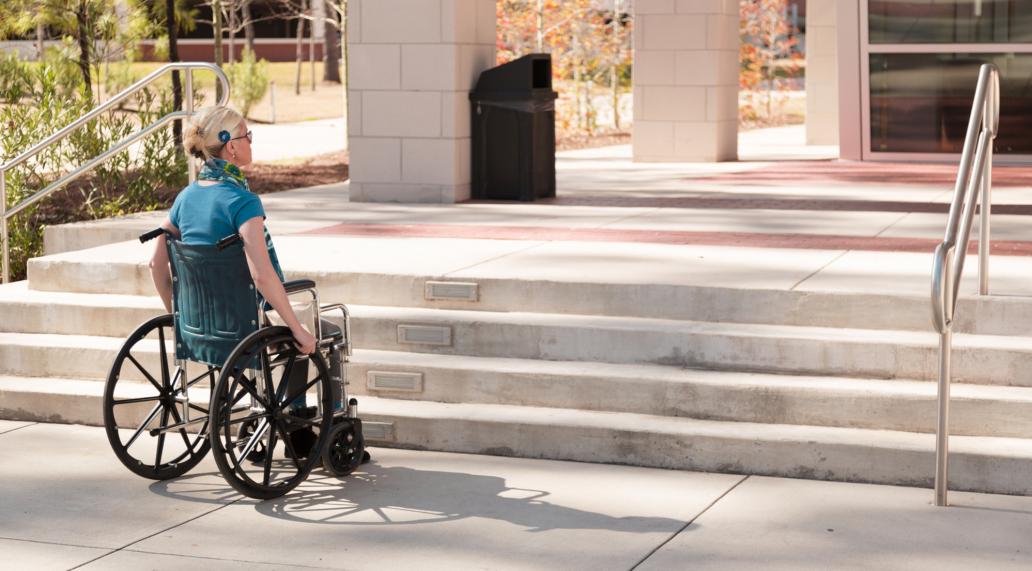
The demographic change is leading to a growing number of elderly people. According to the Federal Statistical Office, today every fourth German citizen is 60 years old or older. However, only five percent of the homes and houses of this generation meet the minimum requirements for age-appropriate living. This is according to a study by the German Age Aid Association. A survey commissioned by o2online shows that 65 percent of respondents are concerned about what their living situation will be like in old age. However, it also showed that only a scant 18 percent have already planned concrete measures for renovation. What needs to be considered if you want or need to make your living space accessible, knows Karin Dieckmann from Barrierefrei Leben e.V.
Mrs. Dieckmann, when should one start thinking about barrier-free living?
The necessity can affect anyone at any time, regardless of age. Therefore, we recommend ensuring that everything is barrier-free or made as accessible as possible when purchasing a house or apartment, or during any renovation or refurbishment.
The rooms in a new building should, for example, be more square rather than corridor-like. This way, there is space for movement if a walker is needed at some point. The shower in the bathroom should be at floor level. If you want a bathtub, the preparations—for example, drains—for a floor-level shower can still be made. There are beautiful freestanding bathtubs that can be removed if necessary. If windows or door elements are replaced, the transition from, for example, the living room to the terrace can also be designed to be barrier-free as part of this measure.
Which areas in the house or apartment are the most important?
The bathroom. With it, a person's independence stands and falls. The kitchen is also important, but if it's not usable, you can still order meals on wheels or go to a lunch table.
Are funding measures linked to a degree of care?
There are very different support measures. The nursing care fund, for example, subsidizes improvements to the living environment with up to 4000 euros. This support is linked to a care level. Important to know: This support does not apply to a single measure, but is a one-time grant for the entire living environment design. Only if the health situation of the resident worsens can a new subsidy be requested. However, a doctor's certificate is required for this.
At the federal level, the Kreditanstalt für Wiederaufbau (KfW) offers a funding program for age-appropriate remodeling. Individual measures for barrier reduction are subsidized with 10 percent of eligible costs, but not more than 5,000 euros per housing unit. Since construction is a state matter, there are also different funding programs in the various federal states that are not tied to a nursing care level. On our website www.online-wohn-beratung.de https://www.online-wohn-beratung.de/finanzielle-hilfen-kostenuebernahme/foerdermittel-und-zuschuesse-fuer-das-altersgerechte-und-barrierefreie-(um-)-bauen/foerdermittel-der-bundeslaender/ we have listed all known to us. But sometimes there are also municipal subsidies. Affected individuals should inquire about these with their respective municipality. And then there is the possibility of claiming the costs fully for tax purposes. For that, I also recommend our page for more information. https://www.online-wohn-beratung.de/financial-aid-cost-coverage/funding-and-grants-for-age-appropriate-and-barrier-free-(re)construction/tax-relief/
What if it becomes more expensive?
Unfortunately, that can always be the case. It's best to think about it in advance. If you own your own home, you may need to take out a loan. If you rent, you can offer the landlord to cover the costs and adjust the rent accordingly. And in an emergency, there is still the social services office.
Can funding be applied for retroactively?
No. You should definitely wait for the approval. If it needs to be done quickly, you can get a pre-approval. However, this does not replace the decision on the application. It may still be that the application is rejected.
Are only renovations within one's own four walls supported?
No. Renovations in rental apartments are also supported.
What should be considered when renting a home?
In any case, you should obtain the landlord's permission. Ideally, everything should be in writing. You should also get confirmation that dismantling is not required upon moving out. This is not always easy, especially when the measures are outside the living space. For example, in the case of a stair lift in the hallway to the apartment. Here, dismantling may be required.
Where can one find advice?
In housing advice offices, which unfortunately are not yet available nationwide. You can find a list of the offices on our page. https://www.online-wohn-beratung.de/wohnungsanpassung-barrierefrei-(um-)-bauen/wichtiges-fuer-mieter-eigentuemer-und-bauherren/wohnberatungsstellen/ . Care support points, municipal senior advisory centers, and self-help groups also offer consultations. And those who own their homes can also contact associations such as "House and Property." As a rule, they offer counseling, even when it comes to filling out applications.
famPLUS - Together for your personal PLUS!


